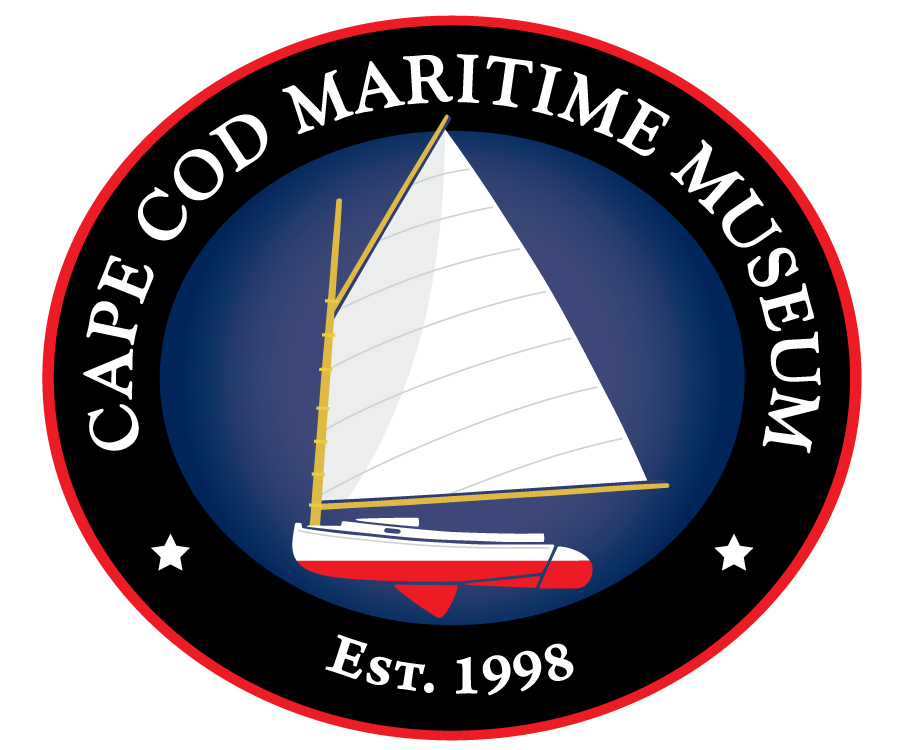The Young Mariner Program - Evolving and Expanding
Taylor Irwin, Director of the Young Mariner Program and Education at the Cape Cod Maritime Museum, leading a hands-on educational session with students in October 2024.
When I joined the Cape Cod Maritime Museum as the Young Mariner Program Director, I was ecstatic about a summer filled with adventure and fun. We had that and so much more for eight weeks this past summer. As the colder months arrived, I couldn’t help but wonder: Why should the fun stop?
I thought about how when kids come to summer camp here, if they aren’t returning, it’s often their first time at the museum. I wanted a way to get more Cape Cod resident children in to learn about the incredible history and traditions of Cape Cod's maritime culture. I envision the museum as a destination where every Cape Cod student experiences the wonder of maritime history and culture during their childhood.
That’s why I developed an educational, hands-on field trip program right here at the museum. Students from all over Cape Cod, from Truro to Bourne, can come to learn about the rich maritime history that defines our region. I believe it’s crucial for kids to not only be aware of this heritage but also embrace it. Cape Cod is, and always has been, a maritime environment. The tales of mariners and their diverse roles are woven into the very fabric of its history.
I developed educational games, museum-wide scavenger hunts, and vocational station activities to keep kids engaged and moving for this day-long field trip.
One of the first activities I developed was around Thanksgiving. This was a game where students “step into the shoes” of a pilgrim. First, we talk about navigation at sea—how it was done hundreds of years ago versus today. This leads to a discussion about the Pilgrims and how they navigated to Cape Cod (or, rather, how they ended up off-course and accidentally landed on Cape Cod). The game divides kids into small groups, or “boats.” The kids act as board game pieces, draw cards, and work together to decide how to navigate across the Atlantic from Plymouth, UK, to Plymouth, America. They must avoid hurricanes, waterspouts, and other challenges along the way. Sometimes, they’re lucky with good weather and can surge ahead of the other teams. This game shows kids how unpredictable life at sea can be—with strong winds, sudden illness, or food contamination all potentially derailing their journey.
“I am encouraged to try your job when I grow up. It sounds really exciting. It sounds like you have lots to do. I hope to go back soon and learn more about the ocean.”
“Today I leaned that there are bycatches and regular catches. I always thought that when you fished whatever you caught is what you meant to catch so that was very interesting to learn.”
“One of the things that I liked most about the field trip was the game. It was fun to pull different cards. Thank god I didn’t pull a hurricane when I was close to the end!”
“It was crazy that a glass bottle takes 1,000,000 years to decompose. I learned that plastic never leaves the ocean. Why does plastic never leave the ocean?”
After the game, we move on to a museum-wide scavenger hunt. In pairs, kids receive a packet filled with questions about our exhibits. They must locate the exhibit, artifact, or display, read the information, and write the correct answers. At the end of the hunt, they’re rewarded with badges for achieving “Master Mariner” status.
Then comes my personal favorite part of the day: vocation stations. I created this segment to introduce students to maritime careers, particularly ones they can pursue here on Cape Cod. Each of the four stations features a hands-on challenge tied to a different job:
Marine Biology: Students complete a marine food web, starting with phytoplankton and building up to white sharks. Then, they create their own food web.
Marine Engineering: Students build two boats using tin foil—one measuring 6x6 inches and the other 12x12 inches. They test their designs by floating them in a water tank and counting how many pebbles each can hold before sinking.
Marine Conservation: Students sort various trash items by how long they decompose in the ocean—from a paper towel (1-2 weeks) to a glass bottle (1 million years). This activity highlights the importance of protecting our marine environment.
Commercial Fishing: Students use magnets to “fish” blindly for target catch and bycatch using a kiddie pool. They tally their results and use simple multiplication to calculate total weights, learning about sustainable fishing practices.
“I really loved everything about this field trip and you have inspired me to do a job like yours! ... This field trip was probably one of the best field trips I’ve ever had.”
I hope this program opens kids’ eyes to the many possibilities available to them in this area. These careers, deeply connected to Cape Cod’s identity and history, are vital to its future. By making history hands-on and fun, we aim to inspire the next generation of maritime enthusiasts and professionals.
If you'd like to bring your school group to the museum, feel free to email me at tirwin@capecodmaritimemuseum.org for more details!









